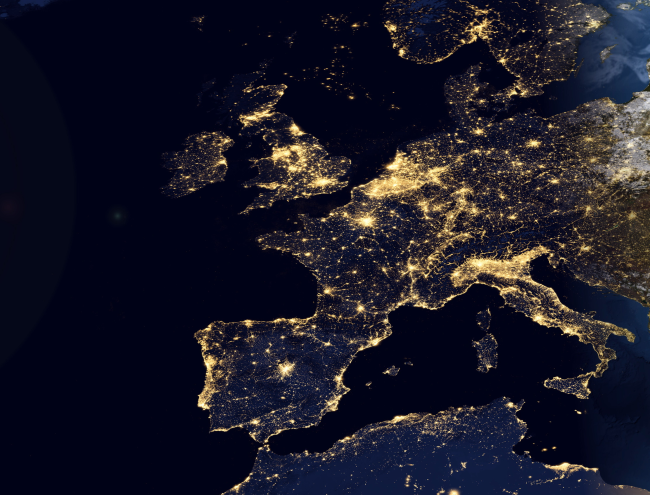Energy Efficiency versus the EU ETS: Counterproductive Tribalism in the Commission

On 22 June 2011, a proposal for increased Energy Efficiency was presented by the European Commission. The energy efficiency directive was intensely negotiated and faced strong internal opposition from a number of players. DG Climate officials have shared their concerns with the public.
Critics argue that the new directive threatens the credibility of the EU ETS. According to the CDC (Caisse des Dépôts et Consignation, Mission Climat) the efficiency proposals could lead to a potential reduction of between 400 and 450 MtCO2 in aggregate emissions between now and 2020. Some of these reductions could overlap with those required under the EU ETS therefore leading to a drop in carbon prices. But the answer then is tightening the EU ETS, not jeopardizing the potential for efficiency initiatives that could trigger carbon abatement in the most cost effective way.
One fix would be to recalibrate the EU ETS by setting aside a number of allowances from the part that will be auctioned between 2013 and 2020. The set aside option, already mentioned in the low carbon roadmap proposed by the Commission in March 2011, has been brought up again in the EE directive. Such modifications would take into account unexpected drops in emissions such as those caused by the financial crisis. Recently, carbon prices fell reflecting the recession and proved indeed that the market was well functioning but meanwhile the fundamentals of the energy mix have not changed. If we don’t “tweak” the system in time, whether in adding incremental programs to reinforce efforts like the EU ETS or in tightening the emission cap, efforts in our economies to modify the energy mix will be postponed to later therefore delaying the fight against climate change.
Unfortunately the set aside option may have gotten more difficult to implement. Germany’s decision to phase out nuclear power plants could lead to an emissions increase by 493 MtCO2 to 2020 according to Point Carbon which will potentially create tension on the carbon market. The pressure against any tightening, notably coming from the German industry, will likely be intense.
If nothing else, the spat over the proposal directive illustrates how difficult it is to calibrate the EU ETS so it can deliver the proper signal that will trigger investment into low carbon technologies.
This feud over the energy efficiency directive also illustrates a disappointing divergence between DG energy and DG climate. The EU ETS is organizationally DG climate’s baby, and a central pillar of Europe’s climate change policy. Not surprisingly, DG energy drafted the energy efficiency directive. But surely, we didn’t come this far to realize that reducing emissions is mainly an energy related problem - and after all the public assurances of an internally coordinated Commission?
Energy efficiency has been too long and remains the elephant in the GHG abatement room. Energy savings can cut emissions immediately and significantly while inducing behavioural changes will take longer. Surely the EU ETS can still function in a scenario of higher efficiency. Ironically, all NREAPs (National Renewable Energy Action plans) have been designed taking into account efficiency savings as the most effective way to increase the share of RES in electricity production objective backed up by DG Climate. The decision of some member states to phase out/give up nuclear production just makes this more urgent.
If the energy efficiency directive can yield results faster than the carbon market, so be it! The fight against climate change requires the implementation of all tools available. We can’t afford to wait.
____________________________________________________
http://www.cdcclimat.com/The-EU-ETS-and-energy- efficiency.html?lang=en
http://www.pointcarbon.com/aboutus/pressroom/pressreleases/1.1552105

Available in:
Regions and themes
Share
Related centers and programs
Discover our other research centers and programsFind out more
Discover all our analysesBrazil One Year Away from the October 2026 General Elections
Brazil’s general elections will be held on October 4, 2026, to elect the president, vice-president, members of the National Congress, governors, deputy governors and state legislative assemblies. For the presidential and gubernatorial elections, a second round will be held on October 25 if no candidate obtains a majority of the votes in the first round.
COP30: An Inflection Point for Climate Action and Governance
The 30th Conference of the Parties (COP30), opening in Belém, Brazil, on November 10th 2025, convenes at a perilous moment.
The Strategic Dimension of Skills in the Clean Industrial Deal
In the competitiveness and energy transition battles, the European Union (EU) must master a determinant factor: skills.
The Energy Transition Faces Geopolitical Challenges. How Can Ideological Divides Be Overcome?
President Trump’s positions and policies, combined with record coal consumption and booming global electricity demand, geo-economic confrontation, and widespread concerns about energy security, are changing the game when it comes to understanding realistic decarbonization trajectories. The war in Europe is intensifying competition between defense and transition budgets. This is also the case elsewhere in the world.










